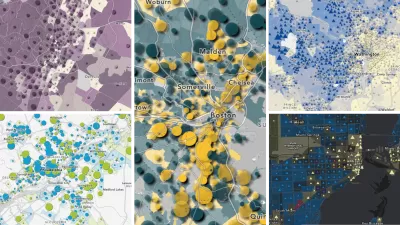The Census is going to be wrong, according to this column from The Washington Post. Statistical adjustments help get undercounts closer to reality, but many opponents prevent their use.
"Census adjustment has long been a political flash point because the census has winners and losers; an undercount in New York and Chicago could mean fewer members of Congress from blue cities and more from red exurbs. But resistance to adjustment is only partially driven by political interest. It also represents a worrisome mathematical Luddism; adjustment opponents depict statistical estimates as hunches dressed up in fancy mathematical clothes or even plots designed to hijack the census for political ends.
Among the opponents is Sen. Judd Gregg (R-N.H.), who withdrew as the Obama administration's nominee to be commerce secretary in part because of disagreements over the census. Gregg's take on adjustment: 'You take guesses based on what you think is the best political outcomes that you want, rather than counting people who actually exist.'"
The question of whether or not to allow statistical adjustments of Census counts has been in contention for decades. But column author and mathematician Jordan Ellenberg says without them the Census will continue to paint an inaccurate picture of American demographics.
FULL STORY: The census will be wrong. We could fix it.

Planetizen Federal Action Tracker
A weekly monitor of how Trump’s orders and actions are impacting planners and planning in America.

Maui's Vacation Rental Debate Turns Ugly
Verbal attacks, misinformation campaigns and fistfights plague a high-stakes debate to convert thousands of vacation rentals into long-term housing.

Restaurant Patios Were a Pandemic Win — Why Were They so Hard to Keep?
Social distancing requirements and changes in travel patterns prompted cities to pilot new uses for street and sidewalk space. Then it got complicated.

In California Battle of Housing vs. Environment, Housing Just Won
A new state law significantly limits the power of CEQA, an environmental review law that served as a powerful tool for blocking new development.

Boulder Eliminates Parking Minimums Citywide
Officials estimate the cost of building a single underground parking space at up to $100,000.

Orange County, Florida Adopts Largest US “Sprawl Repair” Code
The ‘Orange Code’ seeks to rectify decades of sprawl-inducing, car-oriented development.
Urban Design for Planners 1: Software Tools
This six-course series explores essential urban design concepts using open source software and equips planners with the tools they need to participate fully in the urban design process.
Planning for Universal Design
Learn the tools for implementing Universal Design in planning regulations.
Heyer Gruel & Associates PA
JM Goldson LLC
Custer County Colorado
City of Camden Redevelopment Agency
City of Astoria
Transportation Research & Education Center (TREC) at Portland State University
Jefferson Parish Government
Camden Redevelopment Agency
City of Claremont




























